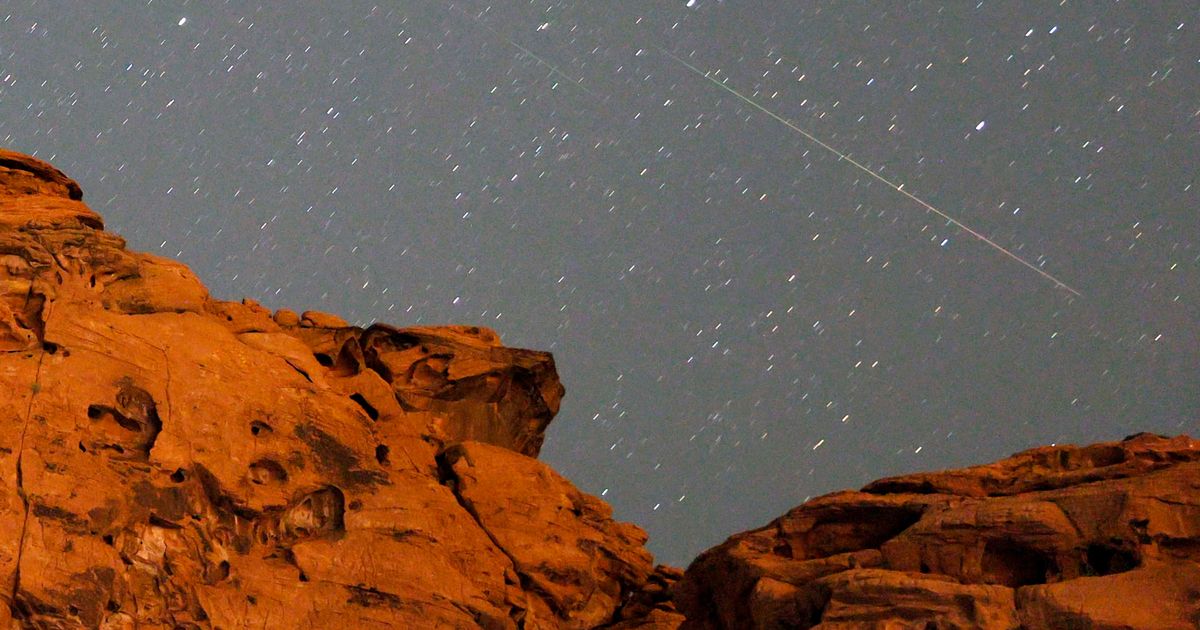COSMIC SPECTACLE: Asteroid to eclipse bright star Betelgeuse in rare celestial event visible to millions

MIAMI, FLORIDA: In a celestial spectacle set to captivate millions, Betelgeuse, one of the most luminous stars in the night sky, will momentarily disappear as it is eclipsed by the asteroid Leona.
Betelgeuse, a red supergiant, is a prominent star in the constellation Orion. The asteroid causing the eclipse, Leona, is a slowly rotating, oblong space rock located in the main asteroid belt between Mars and Jupiter.
The eclipse, expected to last no more than 15 seconds, offers astronomers a unique opportunity to gain more insights into both Betelgeuse and Leona. Stay tuned for this one-of-a-kind astronomical event!
When can we witness the cosmic spectacle?
This rare event, reportedly occurring late Monday into early Tuesday (December 11-12), will be visible along a narrow path stretching from central Asia's Tajikistan and Armenia, across Europe's Turkey, Greece, Italy and Spain, to the United States Miami and the Florida Keys, and finally, to parts of Mexico, per New York Post.
A recent observation of an eclipse of a less bright star by Leona, conducted by a team led by Spanish researchers, has led to an estimation of the asteroid's dimensions to be approximately 34 miles in width and 50 miles in length.
However, these predictions, as well as the size of the star and its vast atmosphere, are still subject to uncertainties. It remains unclear whether the asteroid will completely obscure the star, resulting in a total eclipse.
Alternatively, the outcome could be a "ring of fire" eclipse, where a tiny, fiery border encircles the star.
Uncertainty adds intrigue to upcoming cosmic treat
In the event of a total eclipse, it is uncertain how long the star will be completely obscured, with estimates suggesting it could be up to 10 seconds.
"Which scenario we will see is uncertain, making the event even more intriguing," stated Gianluca Masa, an astronomer and founder of the Virtual Telescope Project, which will broadcast the event live from Italy.
Betelgeuse located an estimated 700 light-years away, can be seen with the naked eye.
The view can be enhanced with binoculars or small telescopes. To put it in perspective, a light-year is equivalent to 5.8 trillion miles.
Betelgeuse outshines our sun by thousands of times and is approximately 700 times larger.
What are NASA's observations about Betelgeuse?
Betelgeuse's enormity is such that if it were to take the place of our sun, it would extend beyond Jupiter, as per NASA's observations.
Despite being a mere 10 million years old, significantly younger than our 4.6 billion-year-old sun, Betelgeuse is expected to have a shorter lifespan due to its mass and the rapid rate at which it consumes its material.
In 2019, after centuries of fluctuating brightness, Betelgeuse dimmed significantly when a large amount of surface material was expelled into space.
According to NASA, the ensuing dust cloud temporarily obstructed the starlight, but within six months, Betelgeuse regained its previous brightness.
Scientists predict that Betelgeuse will undergo a supernova, an explosion, within the next 100,000 years.
'Don't say that star's name three times in a row'
The internet swiftly responded on social media, with many individuals expressing curiosity about the event’s significance. Interestingly, some advised against uttering the star's name three times which sounds similar to 'Beetlejuice'.
In Tim Burton's renowned film 'Beetlejuice', uttering the name thrice serves as a magical invocation for the titular character. This tripartite repetition acts as a binding agreement, confirming the need for his services.
Interestingly, if his name is pronounced more than three times, he will not materialize. The number three has been historically linked with the Devil, adding an eerie undertone to the movie, per TOYNK.
The user on X wrote, "Just don't say that star's name three times in a row or we all be in trouble."
"Best not to utter that star's name three times in a row; we might find ourselves in some unexpected trouble," said another.
One user noted, "Here’s the bright star Betelgeuse waiting for it to happen:"
A curious user claimed, "Imagine it already supernova'd and the light finally gets to us right when the asteroid eclipses, seems like some timing the universe would go for."
Just don't say that star's name three times in a row or we all be in trouble. 😳
— Riley T King (@ManCrushMullin) December 8, 2023
Best not to utter that star's name three times in a row; we might find ourselves in some unexpected trouble. 😳
— What is it like to raise a cat? (@EGoulbourn46222) December 8, 2023
Here’s the bright star Betelgeuse waiting for it to happen: pic.twitter.com/j6oH8cbEvl
— Thomas Matthew 🇺🇸 (@latayprime) December 8, 2023
Imagine it already supernova'd and the light finally gets to us right when the asteroid eclipses, seems like some timing the universe would go for.
— ▄︻デǟաǟʀɛ══━一 (@HarrierInbound) December 8, 2023
This article contains remarks made on the Internet by individual people and organizations. MEAWW cannot confirm them independently and does not support claims or opinions being made online.










